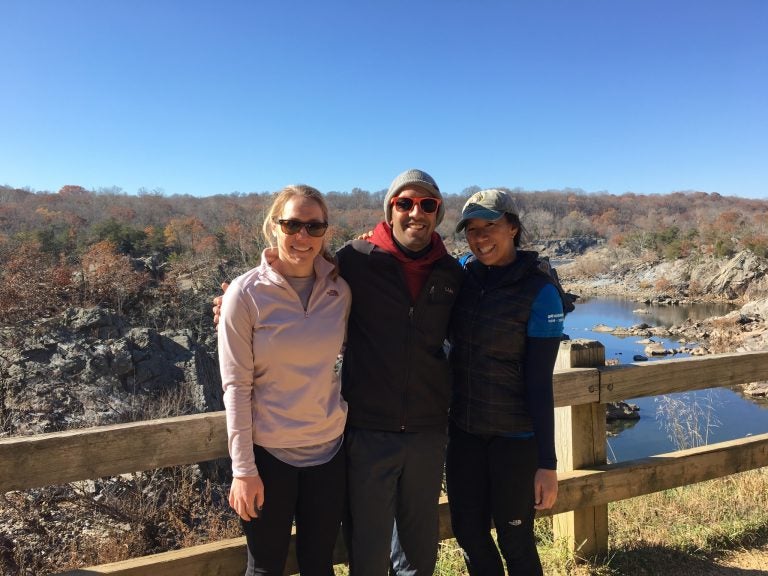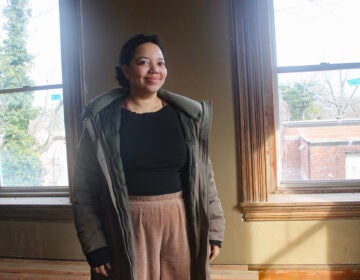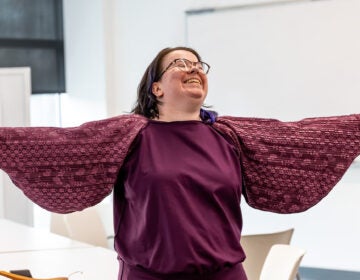Prescription for arts classes could make med students better docs, scientists say
Scientists have found a correlation between medical students engaging in the arts and humanities and showing qualities of openness, wisdom and empathy.

Megan Ritter (left) at Great Falls, outside Washington, D.C., says hiking, going to concerts, and visiting museums keeps her balanced. And she thinks that makes her a better doctor. (Courtesy of Megan Ritter)
Some researchers think the key to making doctors more open and empathetic could be found in a deeper engagement with the arts.
In a recent study, published in the Journal of General Internal Medicine, scientists found a correlation between medical students engaging in the arts and humanities, and showing qualities of openness, wisdom, and empathy.
“Medicine today finds itself caught in a paradox,” wrote the study authors. “It has undoubtedly enjoyed many successes, and yet it is also the profession with the highest rate of suicide, a burnout rate greater than 50 percent, rampant depression, dwindling empathy, a negative view by the public, and a disturbing tendency for physicians to quit.”
“I guess the big question is, what are those ingredients that go into that unique cocktail that makes a good doctor?” said Dr. Salvatore Mangione of Thomas Jefferson University in Philadelphia. “Clearly, competence, technical skills, knowledge, is what medical school is all about. But, we are not caring for carburetors.”
Mangione, the study’s first author, said engagement with arts and literature might make medical students do better in the field.
That’s held true for Dr. Megan Ritter, who works at the Beth Israel Deaconess Medical Center in Boston where she’s a fellow in the endocrinology department.
Ritter has always enjoyed concerts and art museums, and that didn’t stop when she entered medical school at Drexel. Other students were taken aback by how balanced she seemed.
“The average medical student is a type A person who’s focused on being the best of the best,” said Ritter, who also teaches at Harvard Medical School.
While she studied hard, Ritter said, she also knew when to re-engage with her own humanity.
And at a certain point, unrelenting focus on medical studies can be counterproductive. Burnout becomes likely, which doesn’t help anyone perform better.
At Drexel, the program included humanities-based courses, and Ritter said that faculty were aware and engaged in efforts to prevent student burnout.
Concentrating on wellness on top of all the work, Ritter said, served her well in medical school and in her burgeoning career as a physician.
Mangione thinks that doctors like Ritter, who value empathy and self-connectedness, probably do better at work.
“There is data published by Jefferson that doctors who score higher on the empathy scale provide better care to diabetes patients and have a lower rate of complications,” he said.
Much of that may be the placebo effect — that patients feel they can trust their empathetic doctors to heal them — and that actually helps those patients get better and follow medical advice, Mangione said.
He’d like to see medical schools prioritize arts and culture, though that runs counter to the general thinking of nearly a century.
Once upon a time in Germany, he said, students had to play a musical instrument to get into medical school. That practice could be worth a try here, he said.
WHYY is your source for fact-based, in-depth journalism and information. As a nonprofit organization, we rely on financial support from readers like you. Please give today.




